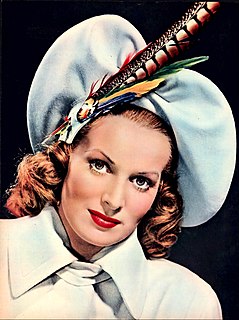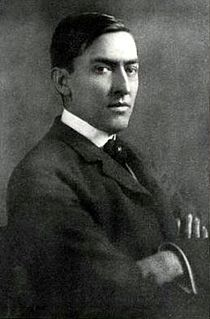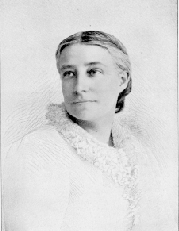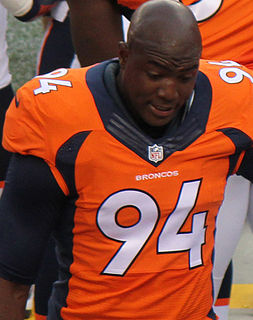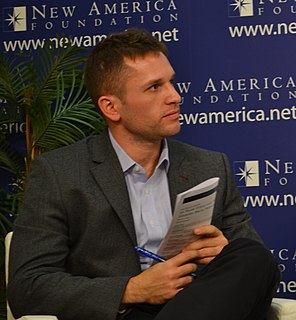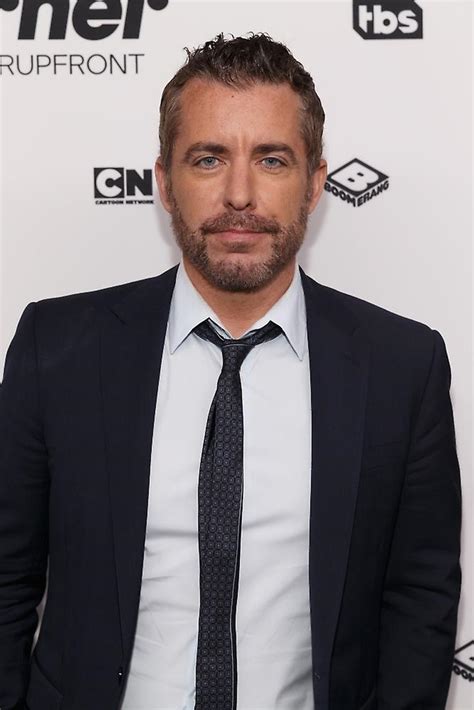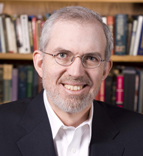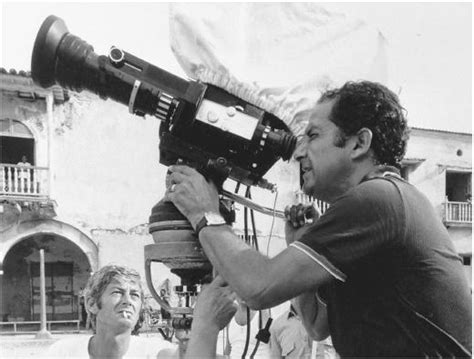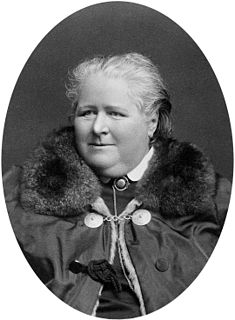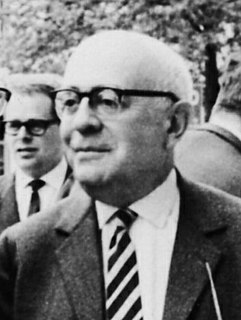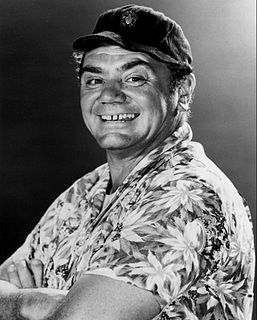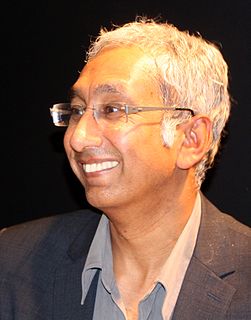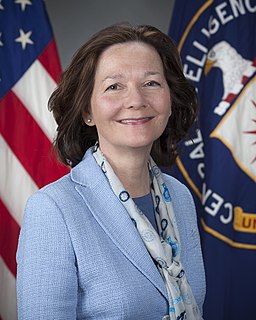Top 1200 Moral Hazard Quotes & Sayings - Page 13
Explore popular Moral Hazard quotes.
Last updated on December 23, 2024.
This struggle may be a moral one, or it may be a physical one, and it may be both moral and physical, but it must be a struggle. Power concedes nothing without a demand. It never did and it never will. Find out just what any people will quietly submit to and you have found out the exact measure of injustice and wrong which will be imposed upon them, and these will continue till they are resisted with either words or blows, or with both. The limits of tyrants are prescribed by the endurance of those whom they oppress.
Even in the era of AIDS, sex raises no unique moral issues at all. Decisions about sex may involve considerations about honesty, concern for others, prudence, and so on, but there is nothing special about sex in this respect, for the same could be said of decisions about driving a car. (In fact, the moral issues raised by driving a car, both from an environmental and from a safety point of view, are much more serious than those raised by sex.)
Being an Irishwoman means many things to me. An Irishwoman is strong and feisty. She has guts and stands up for what she believes in. She believes she is the best at whatever she does and proceeds through life with that knowledge. She can face any hazard that life throws her way and stay with it until she wins. She is loyal to her kinsmen and accepting of others. She's not above a sock in the jaw if you have it coming.
As a moral and social institution, a weekly rest is invaluable. It is a quiet domestic reunion for the bustling sons of toil. It ensures the necessary vacation in those earthly and turbulent anxieties and affections, which would otherwise become inordinate and morbid. It brings around a season of periodical neatness and decency, when the soil of weekly labour is laid aside, and men meet each other amidst the decencies of the sanctuary, and renew their social affections. But above all, a Sabbath (one day of rest in seven) is necessary for man's moral and religious interests.
Art is not and never has been subordinate to moral values. Moral values are social values; aesthetic values are human values. Morality seeks to restrain the feelings; art seeks to define them by externalizing them, by giving them significant form. Morality has only one aim - the ideal good; art has quite another aim - the objective truth... art never changes.
If we remain one people, under an efficient government, the period is not far off when we may defy material injury from external annoyance; when we may take such an attitude as will cause the neutrality we may at any time resolve upon to be scrupulously respected; when belligerent nations, under the impossibility of making acquisitions upon us, will not lightly hazard the giving us provocation; when we may choose peace or war, as our interest, guided by justice, shall counsel.
There is no author or legislator of the moral law. It is simply valid in itself in the nature or essence of things. We become autonomous only when we obey it, because then our will aligns itself with the objectively valid law, and our choice follows the same law as that we give ourselves. We can think of rational faculty (or the idea - the pure rational concept, not exhibitable in experience) as the legislator or author of the law because reason recognizes an objective standard, and to that extent is already aligned with objective moral truth.
Nothing can better express the feelings of the scientist towards the great unity of the laws of nature than in Immanuel Kant's words: "Two things fill the mind with ever new and increasing awe: the stars above me and the moral law within me."... Would he, who did not yet know of the evolution of the world of organisms, be shocked that we consider the moral law within us not as something given, a priori, but as something which has arisen by natural evolution, just like the laws of the heavens?
There did not have to be a moral. She need only show separate minds, as alive as her own, struggling with the idea that other minds were equally alive. It wasn't only wickedness and scheming that made people unhappy, it was confusion and misunderstanding, above all, it was the failure to grasp the simple truth that other people are as real as you. And only in a story could you enter these different minds and show how they had an equal value. That was the only moral a story need have.
In the one-on-one it is going to be harder for [Donald] Trump to get away from those sorts of things because there will be more opportunities for Hillary [Clinton] to follow up on those sorts of things. And I also think to your previous point, I think she really does need to induce errors from him because the biggest hazard to Hillary Clinton is that Trump could clear the low bar of acceptability in debate.
Blind obedience is itself an abuse of human morality. It is a misuse of the human soul in the name of religious commitment. It is a sin against individual conscience. It makes moral children of the adults from whom moral agency is required. It makes a vow, which is meant to require religious figures to listen always to the law of God, beholden first to the laws of very human organizations in the person of very human authorities. It is a law that isn't even working in the military and can never substitute for personal morality.
Either we're a team or we aren't. Either you trust me or you don't." Hale took a step toward her. "What's it going to be, Kat?" It is an occupational hazard that anyone who has spent her life learning how to lie eventually becomes bad at telling the truth; in that moment Kat didn't have a clue what to say. I carn't do this with out you sounded trite. What they were doing was to big for a simple please. Hale I-" You know what? Never mind. Either way, I'm in Kat." He seemed utterly resloved as he slipped on his sunglasses. "I'm all in
So often times we see these films that erode human dignity...films that deny the transcendent moral order of the moral universe. They're always eroding natural affections for families. Fathers betray their commitments, children's are always portrayed as brats and disobedient, marriages are always in crisis and struggle. I think (for) most of us, that's not the lives we live. We're always being challenged, we always have challenges but we love our families, we love our spouse, we love our children.
We need strong Christians who can persevere against hardship, who can sustain hope through tragedy, who can lift others by their example and their compassion, and who can consistently overcome temptations. We need strong Christians who can make important things happen by their faith and who can defend the truth of Jesus Christ against moral relativism and militant atheism. What is the source of such moral and spiritual power, and how do we obtain it? The source is God. Our access to that power is through our covenants with Him.
The Shadow is a moral problem that challenges the whole ego-personality, for no one can become conscious of the shadow without considerable moral effort. To become conscious of it involves recognizing the dark aspects of the personality as present and real. This act is the essential condition for any kind of self-knowledge, and it therefore, as a rule, meets with considerable resistance. Indeed, self-knowledge as a psychotherapuetic measure frequently requires much painstaking work extending over a long period of time.
But risks must be taken because the greatest hazard in life is to risk nothing. The person who risks nothing, does nothing, has nothing, is nothing. He may avoid suffering and sorrow, but he cannot learn, feel, change, grow or live. Chained by his servitude he is a slave who has forfeited all freedom. Only a person who risks is free. The pessimist complains about the wind; the optimist expects it to change; and the realist adjusts the sails
If animals are no longer quite outside the moral sphere, they are still in a special section near the outer rim. Their interests are allowed to count only when they do not clash with human interests. If there is a clash - even a clash between a lifetime of suffering for a nonhuman animal and the gastronomic preference of a human being - the interests of the nonhuman are disregarded. The moral attitudes of the past are too deeply embedded in our thought and our practices to be upset by a mere change in our knowledge of ourselves and of other animals.
The bowed head, the buried face. She is silent, she will never speak, never forgive, never reach a hand, never leave this frozen present tense. All waits, suspended. Suspended the autumn trees, the autumn sky, anonymous people. A blackbird, poor fool, sings out of season from the willows by the lake. A flight of pigeons over the houses; fragments of freedom, hazard, an anagram made flesh. And somewhere the stinging smell of burning leaves.
Members in the Commonwealth of God are not bound together by the specifics of their religion, for the nature of our interdependency does not require this. Rather we are bound by the shared recognition that when one person suffers, all suffer; when we violate one life, all lives are violated; when we pollute the earth, all living things are stained; when one nation threatens the security of another, it, too, becomes less secure; when we place the planet in mortal danger, we hazard the future of our own children as well as the children of our enemies.
I would require every producer of food to follow and have enforced a standard safety plan. We know how to produce safe food. It has a horrible name; it's called HACCP - Hazard Analysis and Critical Control Point - and this was a food safety system that was developed for NASA so that astronauts wouldn't get sick in outer space. If you just think about what it might be like to have food poison under conditions of zero gravity, you don't even want to think about it.
What really worries me is that those who are in positions of power are not really affected by what we are writing. In the moral dialogue you want to start, you really want to involve the leaders. People ask me: "Why were you so bold as to publish A Man of the People? How did you think the Government was going to take it? You didn't know there was going to be a coup?" I said rather flippantly that nobody was going to read it anyway, so I wasn't likely to be fired from my official position. It's a distressing thought that we cannot engage our leaders in the kind of moral debate we need.
[Lighting a cigarette] Well, I'm not here to impinge on anybody else's lifestyle. If I'm in a place where I know I'm going to harm somebody's health or somebody asks me to please not smoke, I just go outside and smoke. But I do resent the way the nonsmoking mentality has been imposed on the smoking minority. Because, first of all, in a democracy, minorities do have rights. And, second, the whole pitch about smoking has gone from being a health issue to a moral issue, and when they reduce something to a moral issue, it has no place in any kind of legislation, as far as I'm concerned.
He is no true reader who has not experienced the reproachful fascination of the great shelves of unread books, of the libraries at night of which Borges is the fabulist. He is no reader who has not heard, in his inward ear, the call of the hundreds of thousands, of the millions of volumes which stand in the stacks of the British Library asking to be read. For there is in each book a gamble against oblivion, a wager against silence, which can be won only when the book is opened again (but in contrast to man, the book can wait centuries for the hazard of resurrection.)
Our example - and commitment - to freedom has changed the world. But along with the genius of our Declaration of Independence, our Constitution, and our Bill of Rights, is the equal genius of our economic system. Our Founding Fathers endeavored to create a moral and just society like no other in history, and out of that grew a moral and just economic system the likes of which the world had never seen. Our freedom, what it means to be an American, has been defined and sustained by the liberating power of the free enterprise system.
The workplace needs the poet's gift. But the poet also needs to be educated about the workplace. You're not just coming in to do your art, you're actually making yourself vulnerable. You yourself are not God's gift to truth. You have to hazard yourself in their world, especially because you're inviting people to do the same. It's all about become visible, becoming incarnate, becoming here and now and yet with our eyes on a future horizon; holding the conversation you were meant to hold.
... we find ourselves facing a rising tide of biologically active, synthetic organic chemicals. Some tinker with our hormones. Some attach themselves to our chromosomes and trigger mutations. Some cripple the immune system. Some light up our genes and so enhance the production of certain enzymes. If we could metabolize these chemicals into completely benign breakdown products and excrete them, they would pose less of a hazard. Instead, a good many of them accumulate.
To laugh is to risk appearing a fool. To weep is to risk appearing sentimental. To reach out to another is to risk involvement. To expose feelings is to risk exposing your true self. To place your ideas and dreams before a crowd is to risk their loss. To love is to risk not being loved in return. To hope is to risk pain. To try is to risk failure. But risks must be taken, because the greatest hazard in life is to risk nothing.
In some socialist states well-performed work is rewarded with moral stimulants instead of material ones. However, the moral stimulants cannot be explained by materialistic philosophy. It is the same case with the appeals for humanism, justice, equality, freedom, human rights, and so forth, which are all of religious origin. Certainly, everybody has the right to live as he thinks best, including the right not to be consistent with his own pattern. Still, to understand the world correctly, it is important to know the true origin of meaning and of the ideas ruling the world.
I join cordially in admiring and revering the Constitution of the United States, the result of the collected wisdom of our country. That wisdom has committed to us the important task of proving by example that a government, if organized in all its parts on the Representative principle unadulterated by the infusion of spurious elements, if founded, not in the fears & follies of man, but on his reason, on his sense of right, on the predominance of the social over his dissocial passions, may be so free as to restrain him in no moral right, and so firm as to protect him from every moral wrong.
We who have seen him now, light on his feet, smooth moving as a leopard, a young man with an old man's science, the most beautiful fighting machine I have ever seen, may live to see him fat, slow, old, and bald taking a beating from a younger man. But I would like to hazard a prediction that whoever beats Joe Louis in an honest fight in the next fifteen years will have to get up the floor to do it.
So immense are the claims on a mother, physical claims on her bodily and brain vigor, and moral claims on her heart and thoughts, that she cannot ... meet them all and find any large margin beyond for other cares and work. She serves the community in the very best and highest way it is possible to do, by giving birth to healthy children, whose physical strength has not been defrauded, and to whose moral and mental nature she can give the whole of her thoughts.
It is natural for every man uninstructed to murmur at his condition, because, in the general infelicity of life, he feels his own miseries without knowing that they are common to all the rest of the species; and, therefore, though he will not be less sensible of pain by being told that others are equally tormented, he will at least be freed from the temptation of seeking, by perpetual changes, that ease which is no where to be found, and though his diseases still continue, he escapes the hazard of exasperating it by remedies.
And should I not, had I but known, have flung the machine this way and that, once more to feel it live under my hand, have sported in the sky and laughed and sung, knowing that never after should I feel so free, so sure in hazard, so secure, riding the daylight in the pride of youth? No more horizons wider than Hope! No more the franchise of the sky, the freedom of the blue! No more! Farewell to wings! Down to the little earth!
Moral questions may not have objective answers-whether revealed by God or by science-but they do have rational ones, answers rooted in a rationality that emerges out of social need. That rationality can only be discovered through exercising the human potential for rational dialogue, the potential for thinking about the world, and for discussing, debating and persuading others. Values can never be entirely wrenched apart from facts; but neither can they be collapsed into facts. It is the existence of humans as moral agents that allows us to act as the bridge between facts and values.
Love interest nearly always weakens a mystery because it introduces a type of suspense that is antagonistic to the detective's struggle to solve the problem. It stacks the cards, and in nine cases out of ten, it eliminates at least two useful suspects. The only effective love interest is that which creates a personal hazard for the detective - but which, at the same time, you instinctively feel to be a mere episode. A really good detective never gets married.



